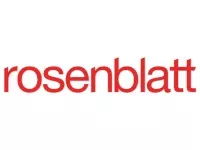Article by The Intellectual Property Team
With the growth in international trade, your company's trademark might be much more valuable than you think. It might also face more threats than you realise.
It must rank as one of the strangest examples of alleged trademark infringement ever. Legendary American stuntman Robert Craig "Evel" Knievel took great exception to the video of Kanye West's 2006 single Touch the Sky.
In the offending video, the US rapper (as "Evel Kanyevel") wears a stars and stripes-trimmed white jumpsuit and crash helmet, reminiscent of those worn by Knievel in the 1970s as he performed the daredevil motorcycle stunts that made him world famous.
Echoing Knievel's unsuccessful attempt to jump over Idaho's Snake River Canyon in a mini-rocket in 1974, "Kanyevel" climbs into a similarly unlikely looking contraption to "traverse" the Grand Canyon.
In December 2006, Knievel's attorney, Richard Fee, filed a multi-million dollar lawsuit against West and Roc-A-Fella Records. Speaking to MTV, Fee said: "Mr Knievel has a trademark on Evel Knievel and an extraordinarily well-recognised white jumpsuit. He wants to be compensated for uses of his likeness and trademark."
It was also alleged that the video tarnished Knievel's image by using "vulgar, sexual and racially questionable content". West's lawyers argued that the video was satire, and therefore protected by First Amendment rights. As it transpired, the pair met in Florida in November 2007 and resolved the matter amicably out of court, just days before Knievel's death at the age of 69. Such a spat shows how disputes over trademarks can occur in all walks of life.
Mark of distinction
"A trademark can be a very powerful and valuable marketing tool," observes Chris Pulham, associate at Rosenblatt Solicitors' intellectual property (IP) and IT department. "Just think how many people around the world recognise the Nike swoosh or the Coca-Cola logo."
A trademark symbolises an organisation's brand identity, its values and quality. "That is why trademarks need to be safeguarded," adds Pulham. "If someone sells inferior goods by using branding that is similar to yours, it can seriously damage the goodwill [reputation] you have built up."
You can apply to register words, slogans, logos, shapes, domain names – even colours. However, "a trademark must be distinctive for the goods and services provided – not deceptive or contrary to law or morality," explains John Hamilton-Jones, deputy head of UK examinations at the UK Intellectual Property Office (UK IPO), the official government body responsible for granting IP rights in the UK. "If your trademark meets these requirements, you might want to apply to register it. The UK IPO will decide whether it is acceptable under the 1994 Trade Marks Act and associated Rules. Your trademark does not have to be registered, but protecting an unregistered mark will rely on the common law of 'passing off'."
Passing off
Passing off is a form of fraud by which someone tries to sell their product by deceiving buyers into thinking it is another company's product. Damages can be won if the claimant can prove their goodwill exists; that the defendant made a misrepresentation likely to deceive; and that the misrepresentation damaged the claimant's goodwill.
Protection from passing off exists without the claimant having to register a trademark, although such cases are often difficult to prove. If the claimant has registered their trademark, there is an automatic right to sue for trademark infringement.
To register in the UK, you complete and return a TM3 form to the UK IPO. Registration involves a non-refundable fee – £200 to apply to register a trademark in one category [class] of goods or services and £50 for each extra class. When you apply to register a trademark, you must include a list of all goods and services on which you will use the mark.
"We examine applications to ensure goods and services are classified correctly," explains Hamilton-Jones. "We also consider whether the trademark is deceptive, sufficiently distinctive, or contrary to the Act or Rules and search for any earlier conflicting UK, EC or international trademarks that are protected in the UK or the EU. We then send applicants a report identifying any objections and potential conflicting marks." Applicants then have two months to overcome any problems.
Notifications go automatically to the holders of marks protected specifically in the UK and also to those of marks protected at EU level who have asked to receive such notifications. If accepted, the trademark is published online in the Trade Marks Journal. There then follows a three-month period during which oppositions may be filed. If there are none, the trademark is registered. It lasts for ten years, but can be renewed. Once a mark is registered, it is still possible for an application to be made for it to be invalidated or revoked.
World view
Many more UK businesses now sell overseas, while the volume of overseas businesses looking to sell in the UK continues to grow.
Selling overseas is made all the more easier by the internet, but this potentially poses additional trademark threats. "You're faced with more competitors – and more potential for the more unscrupulous ones to rip off your brand," says Rosenblatt's Pulham. There is also a greater chance of unknowingly infringing someone else's trademark, so it is important to check.
"A trademark can only be protected in jurisdictions in which it is registered," says Pulham. "If your trademark is only registered in the UK, you have to make applications in each jurisdiction in which you intend to sell. You need to be sure you are fully protected in all those markets."
The content of this article is intended to provide a general guide to the subject matter. Specialist advice should be sought about your specific circumstances.

